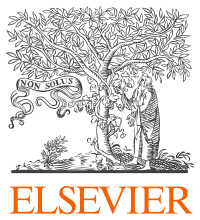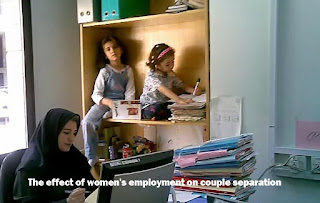The born Children from modern fertility from a jurisprudential and legal point of view (Article: Children Inheritance )
a Samira Mozaffari Laqa ,b Mahmoud Aghajani, The Study of the how realization Inheritance of Children Born of Modern Fertility from the Perspective of Imamieh Jurisprudence and Iranian Law'' 3.th International Conference on Legal and Judicial Studies , Tbilisi- Georgia ( March 2020)
a M.A in Family Law, Department of Islamic Law and Education, Kerman Branch, Islamic Azad University, Kerman, Iran
b Ph.D. in Jurisprudence and Islamic Law, Assistant Professor of Islamic Jurisprudence and Foundations, Kerman Branch, Islamic Azad University, Kerman, Iran
Site address and place of publication of the article:https://3rd.ljconf.ir/en/
The focus of the Conference: Private Law, Property Rights
Article Axis: Realization Inheritance of Children Born of Modern Fertility, Law
The Study of the how Realization Inheritance of Children Born of Modern Fertility from the Perspective of Imamieh Jurisprudence and Iranian Law
Abstract
Modern fertility is a type of therapy that was developed in the late twentieth century to treat infertility in couples. Was first performed on fish in 1765 and eventually led to infertility treatment in humans. This method utilizes fertility from a variety of types inside and outside the uterus. But what about laboratory children and the use of modern fertility techniques as a challenge to the minds of public, community and even users of this type of fertility, is the inheritance status of children born of these methods. With whom are such children inherited a relative affinity and receiving an inheritance from them? The purpose of this study was to investigate the views of Imamieh jurisprudence and Iranian law on the inheritance of children from modern fertility. The method of this research is descriptive-analytical and the method of data collection is library and from the type taking notes of available resources. Finally, by examining this issue in Imamieh jurisprudence and Iranian law we came to some conclusions, this type of Childers belongs to the owners of sperm and ovum. They have a legal relationship and a relative relationship and inherit from their parents.
Keywords: Inheritance, New fertility, Imamieh Jurisprudence, Iranian Law
Conclusion
The Research on how to achieve inheritance in modern fertility using religious principles, and citing the view of Religious scholars and the existing laws, we answered the question that arises in this regard. What can be presented as a result, according to the jurists, if inoculation results from the combination of male sperm with female ovum and there is a marital relationship between them and absence of prohibited practice, have considered it legitimate and correct and issued a fatwa. Because it strengthens the family. Due to the permissible fertility between the child and the couple, a kinship relationship is established, and the child joins his legal parents. And by joining parents and creating a kinship, Inheritance is realized. It is worth noting in all fertility methods, the baby belongs to the owner of the sperm and ovum, Except for the method of inoculation between the donation of sperm and the alien egg and its transfer to the uterus of the female. Because their owners have done this for the sake of benevolence, though the right of the child may be impaired.
How To Cite The Article:
If you want to refer to this article in your research work, you can simply use the following phrase in the resources section:
Inside the text, wherever a phrase or achievement of this article is mentioned, after mentioning the content, the following specifications are written in parentheses.
For the first time: (Mozaffari Laqa, Samira and Mahmoud Aghajani,2020)
(For the second time onwards: (Mozaffari Laqa and Aghajani, 2020
Scientific Sponsors Of The Conference Proceedings







Comments